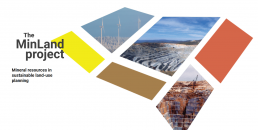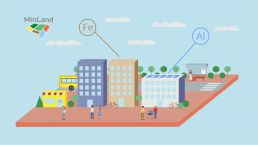The Open Discovery Stack: SearchTV, CineFlix, SearchMusic & Manifesto (Full Review)
The Open Discovery Stack: SearchTV, CineFlix, SearchMusic & Manifesto
Looking for films, series, music, or live sports the fast way? Meet four destinations that keep discovery simple and snappy:
SearchTV.net,
CineFlix.is,
SearchMusic.org, and
Manifesto.to.
Together they’re the “Open Discovery Stack” — less buffering, more finding.
SearchTV.net Review: Live Sports & TV Discovery Without the Drama
Live footballTennisF1 & more
Quick take: SearchTV.net is built for speed. If kickoff is in two minutes or the tennis tie-break just started, you need a compass, not a maze. This is the compass.

What we analyzed
- UX & speed: Minimal clicks to results; pages feel ultra-light; navigation stays obvious even on mobile.
- Search behavior: Intent-driven lookups (teams, leagues, events, channels); supports quick pivots between categories.
- Sports coverage: Football, tennis, basketball, F1 and more. Ideal for “where can I watch” style discovery.
- Mobile usability: Snappy on small screens; key actions remain above the fold.
Pros
- Blazingly quick for live sports discovery.
- Simple, uncluttered UI.
- Great for “open-and-go” moments on match days.
Could be better
- Power users might want advanced filters (date, league, region toggles) in one panel.
CineFlix.is Review: Films & Series Discovery That Respects Your Time
Quick take: A tidy catalogue with trending pages and topical collections. It’s like a librarian who sprints.

What we analyzed
- UX & navigation: Clean sections; list-style indexes help you skim quickly.
- Trending & collections: Handy for “what’s hot” and themed browsing.
- Title pages: Concise info; enough detail to decide without a deep dive.
- Mobile & speed: Loads fast; navigation stays consistent across pages.
Pros
- Intuitive catalogue with low click-friction.
- Trending snapshots reduce decision fatigue.
- Topic pivots for deeper exploration.
Could be better
- Advanced filters (year, rating sliders) would delight picky binge-planners.
SearchMusic.org Review: Songs, Clips, Lyrics & Album Info in One Place
Quick take: When that tune is stuck in your head but your memory is on coffee break, SearchMusic.org gets you from “la-la-la” to the actual track.

What we analyzed
- Search flexibility: Title, artist, fragments — pivots into related items.
- Metadata friendliness: Complements open music databases when you need canonical IDs.
- For creators: Handy for playlist building, editorial notes, and quick cross-checks.
- Speed & mobile: Lightweight pages that don’t fight your 4G.
Pros
- Fast discovery for songs, clips, and lyrics.
- Great pivoting between related music entities.
Could be better
- Power users may want bulk tools (CSV/ID exports) for curation workflows.
Manifesto.to Review: A Pro-User, Privacy-First North Star
Quick take: A plain-English set of values championing user respect, openness, and a healthier digital culture — because smart discovery deserves smart principles.

What we analyzed
- Clarity: Jargon-free language; easy to share with teams.
- Privacy stance: Minimal data collection; pro-user defaults.
- Practicality: Helps frame product choices and discovery workflows.
Quick Comparison
| Platform | At a glance | Best for… | Sports angle |
|---|---|---|---|
| SearchTV.net | Multi-category discovery | Rapid “where do I watch?” answers | Great for football, tennis, F1 discovery |
| CineFlix.is | Film & series catalogue | Trending and topic-based exploration | Useful for sports documentaries & series |
| SearchMusic.org | Music lookups | Lyrics, tracks, album info | Great for sports anthems & playlists |
| Manifesto.to | Values charter | Privacy-minded decision-making | Frames user-first sports experiences |
FAQ: Sports, Films, Music — and Getting to the Good Stuff Fast
Can I find where to watch live football, tennis, or other sports?
Yes. SearchTV.net is built for live sports discovery — football (soccer), tennis, basketball, and motorsports.
What if I just want something great to watch tonight?
Try CineFlix.is for trending films and series, plus topic pivots that won’t waste your evening.
Forgot a song or need lyrics fast?
SearchMusic.org gets you from a hummed fragment to the actual track with lyrics and album info.
Why include Manifesto.to?
Because good discovery runs on good values. Manifesto.to summarizes a privacy-first, pro-user stance that helps guide product choices.
Like this guide? Share it with a friend who has 47 streaming apps and zero patience.
MinLand Final Conference and Clustering event
MinLand Final Conference and Clustering Event
On Friday, 22nd November 2019, the Horizon 2020 funded project MinLand held its Final Conference and Clustering Event in Brussels, Belgium. Members of the Consortium and the Advisory Group and relevant stakeholders from the Commission, the Member States and the Industry met before the very end of the project to share the project results and outcomes and discuss the progress and the achievements made by MinLand.
The Final Conference started with a keynote speech by the EU Project Coordinator, Nikolaos Arvanitidis and a short introduction of the project by the MinLand Coordinator, Ronald Arvidsson, both from the Geological Survey of Sweden (SGU). They welcomed all the attendees to the conference and gave a general overview of the 2-year MinLand project, including its aims, objectives and work structure. The attendees at the final conference comprised of experts from the policy field at various authorisation level, industry, SME’s, experts and relevant stakeholders.
The second session of the event addressed the MinLand methodology and deliverables and explored the steering and implementation capacity on framework conditions provided by clustering various projects addressing mineral-related policies.
Theo van der Sluis Wageningen Environmental Research presented an update on “Mineral Land-use challenging Societal and Environmental Issues”, followed by an overview of the “Land-use planning and mineral-based industrial value chains” by Irina Sokolova representing the Agency for International Minerals Policy (MinPol).
Ronald Arvidsson and Nikolaos Arvanitidis (SGU) presented MinLand’s approach on “Good Practice Elements, Guidelines and Recommendations for mineral land-use”. When it comes to clustering with other projects, Manuel María Regueiro González-Barros from the Geological Survey of Spain (IGME) showcased the “The Intermin project promoting international networking on Raw Materials”, while Kaisa Turunen from the Geological Survey of Finland (GTK) gave a speech about the “MIREU project and land-use”.Shortly afterwards, Nike Luodes from GTK gave an overview of the “The MineFacts project challenging Social License to Operate aspects”and Edine Bakker (SGU) presented “The X-Mine project and stakeholder interaction”. The session ended with Chrysanthi Panagiotopoulou from National Technical University of Athens (NTUA), who presented the “Minland Project and interaction with stakeholders through workshops”, highlighting the networking achievements the project made in terms of potential stakeholders and the steps forward.
The Plenary and closing session of the Final Conference, was open to discussions along with the of Minland conclusions presented by Gerry Stanley , member of the MinLand Advisory Group. Additionally, Marcin Sadowski, Head of Sector of the Raw Materials Department at the Executive Agency for Small and Medium-sized Enterprises (EASME) - European Commission, gave a full and-comprehensive closing speech addressing Minland, but also “Raw Materials within the scope of H2020 and Horizon Europe”.
Download the pdf version of the news article.
The pictures of the conference are available here.
Have a look at the video of the MinLand Final Conference Opening speech here.
Minland Newsletter #4
The 4th and last issue of the MinLand newsletter comprises of interviews with the main stakeholders of the MinLand workshop investigating on the link between EU policies for minerals and a more regulated framework for spatial planning and land-use.
The newsletter includes interviews from Ronald Arvidsson, Coordinator of the MinLand project, and Nikolaos Arvanitidis, EU Coordinator of the MinLand project.
Moreover, the interviewed stakeholders share their perspective on the MinLand while defining how the project could be it good match when it comes to the sustainable use land and the spatial planning field.
Click here to view the newsletter.
Case Studies about Non-Energy Mineral Extraction in Natura 2000
The EU Action Plan for nature, people and the economy requires the Commission, under Action 8, to “identify with Member States and other stakeholders best practices on investment for extractive operations and for land rehabilitation and restoration by non-energy mineral extractive industry, in order to complement the existing guidance on non-energy mineral extractive industry in Natura 2000”.
The aim is to communicate best practices in order to enhance the planning, design and implementation of non-energy extractive industry (NEEI) activities taking into account the provisions of the nature directives (Birds and Habitats directives) and contributing to improving biodiversity, while, at the same time, meeting the demand for raw materials and ensuring the sustainable development of extractive activities.
With this in mind, this booklet presents a collection of practical examples covering various types of mineral extraction and different stages of the mine life-cycle, including planning and design of operations, impact assessment and mitigation during the extraction phase, rehabilitation and after-care once the extractive activity is completed. The selected case studies are grouped according to the following main types of best
practice that they aim to illustrate:
- Partnerships, stakeholder cooperation.
- Impact assessment and mitigation.
- Rehabilitation: habitat restoration and improving species conservation.
The focus is on Natura 2000 sites and habitats and species covered under the nature directives, both in terrestrial and marine areas.
Download the full version of the booklet here.
MinLand Final Meeting
On 4th -5th November 2019, EuroGeoSurveys hosted the MinLand Consortium and Workshop Meeting at its premises in Brussels, Belgium. The project is now close to an end and the work package leaders reunited in Brussels to share the latest developments and updates on each of the work package activities. Ronald Arvidsson from Geological Survey of Sweden (SGU), Coordinator of the MinLand started the meeting with an inspiring introductory speech highlighting the precious work which all the MinLand partners have been implementing in the past years.
The work package leaders presented their respective work package activities. Updates provided the latest achievements on the Minland database, the fact sheets, policy-related issues, mineral land-use good practices and guidelines, networking and clustering activities and related communication and dissemination aspects. The first day of the meeting ended up with discussing the priorities and challenges of mineral land-use planning (Mineral LUP).
The second and last day of the meeting began with a presentation on the “Main achievements of the MinLand project” and “Introducing Sustainable Mineral LUP” showcased by Ronald Arvidsson and the EU Project Coordinator Nikolaos Arvanitidis from Geological Survey of Sweden (SGU). Blažena Hamadová from the Agency for International Minerals Policy (MinPol) presented “LUP and mineral-based industrial value chains” while Katharina Gugerell from the MontanUniversität Leoben (UniLeoben) gave an overview about the “Minerals Land-use challenging Societal and Environmental issues”.
The meeting continued with a presentation by Chrysa Panagiotopoulou from the National Technical University of Athens (NTUA), entitled “The MinLand Network” – a backbone for communication with stakeholders. Potential for stakeholders beyond the lifetime of the project" followed by Andreas Endl from The Vienna University of Economics and Business (WU) discussing the “Guidelines to Good Practice aspects within the MinLand project”.
This last presentation paved the way for a session in which the participants discussed the “Minland Guidelines, Good Practices and Recommendations for Mineral Land Use”.
The work package leaders were also reporting about the progress of the final deliverables. During the closing session the participants had an open discussion on the project results, sharing opinions and the next steps for minerals land use within the members states and harmonization options in Europe.
Download the pdf version of the news media.
Challenging access to mineral land - MinLand Final Conference and Clustering Event
Meet the MinLand project in Brussels, Belgium on Friday November 22nd, 2019 for the MinLand Final Conference.
The meeting focuses upon strategic important land use issues for allowing exploration and mining.
Registrations are open now! Register your spot soon as there are limited number of places for attendance. Register by email to: ronald.arvidsson@sgu.se
The final version of MinLand Final conference and Clustering Event agenda is available here.
MinLand project will also be present at the Raw Materials Week 2019 where you can meet us in person.
Contact the project coordinator in order to discuss more about the project,
Mr Ronald Arvidsson,
Geological Survey of Sweden
Villavägen 18, 752 36 Uppsala, Sweden
Phone: +46 1817 9013
Email: ronald.arvidsson@sgu.se
Official MinLand Project video
Learn more about the importance of ensuring areas for mineral exploration & exploitation activities within the EU
Open call for papers: spatial and regional planning in the context of sustainable management and minerals resources
Dear Spatial & Regional Planning Experts,
The current academic debates about the sustainable supply of raw materials and the way we extract them to investigate different approaches including the way sustainable management and development of natural resources should be achieved. In this context, an active debate about mineral resources governance has lately emerged due to the controversy of the political issue and the complexity of the spatial and regional field in regard to the impact of the mineral resource extraction.
Since the mineral extraction process the management of mineral resources are still quite sensitive topics, the CORP conference is arranging a session from 15-18 April 2020. Real Corp 2020 is aiming about the investigation on mineral resources in the context of sustainable spatial and regional planning and governance, including policy science.
If you are interested in the session and and curious to participate, register to the conference here: conference.corp.at
Submission deadline papers: 6 December 2019 via CORP website.
For any enquiry about the conference contact: katharina.gugerell@unileoben.ac.at.
Click here to download this file.
MinLand Network Meeting
The MinLand Network of Experts Meeting on Sustainable Mineral Land Use took place in Brussels, Belgium, 17th September 2019. As the project has entered its final phase, the Network meeting was the perfect occasion for comprehensive and interactive discussions on the progress and current achievements of the MinLand project, and the challenges about the accessibility of land-use for exploration and mining activities in the EU. Stakeholders addressing various target groups from mine authorities, policy makers related to land-use planning, mining companies and their branch associations, relevant consultants and experts at SME level, and MinLand partners, were present at the event.
From the Geological Survey of Sweden (SGU), Nikolaos Arvanitidis, Chairperson, and Ronald Arvidsson, Coordinator of the Minland project, welcomed the participants with an engaging opening speech followed by an all-encompassing presentation on how to link “land-use planning to EU mineral policies addressing exploration and extraction of non-energy raw materials”.
Nike Luodes from the Geological Survey of Finland (GTK) gave an overview of the “MinLand project case studies, their context and insights about the good practices and value chain challenges”. Right after, Sara Louise Gottenhuber from, The Vienna University of Economics and Business (WU), presented the “MinLand Good Practice Examples and preliminary Mineral Land-Use guidelines”, highlighting how good practices can help in overcoming some challenges in the mining policy field.
The meeting continued with round table discussions on mineral land-use planning with special regard to economic, environmental and social issues among three groups of participants.
Last but not least, the final session of the meeting, moderated by Slavko Solar, Secretary General at EuroGeoSurveys (EGS), ended with a productive panel discussion with six speakers from both the public and private sector, representing institutions, industries and associations.
Rodrigo Chanes-Vicente (Policy Officer at DG Grow), Athanasios Kefalas (President of the Greek Mining Enterprises & General Manager at Imerys), Louise Martins (Geological Survey of Portugal LNEG), Paul Gordon (Consultant at SLR Consulting), Riikka Aaltonen (Senior Adviser, Mineral Policy Department for Innovations and Enterprise Financing / Internationalisation and Sector-Specific Industrial policy Ministry of Economic Affairs and Employment of Finland) and Åsa Allan (Kaunis Iron AB) shared their expertise, perspectives and needs concerning sustainable mineral land-use in Europe.
Among the main highlights shared during the panel discussion, speakers said that: “there is a need for good quality geological data”, “clarify how to apply for permits and the process about accessibility to land and exploration and extraction permits must be predictable”, “communication at the local level is a key enabler for acceptance”, “different languages and expectations among stakeholders can be challenging”, “it must be clear on what grounds one land is selected above the other”, “minerals are the cornerstone of civilization”, “geological information must be made such as to be understood by planners”.
Follow the final progress at www.minland.eu and already find important deliverables including real world cases covering exploration, mining, after use and related mining and land-use policies.
Download the pdf version of the news media.
MinLand Newsletter #3
The 3rd issue of the MinLand newsletter comprises of interviews with the main stakeholders of the MinLand workshop happened in Sweden on April 2018.
The newsletter also describes the best practices on land planning between the Fabodtjarn project and the Boliden AB company. Moreover, the stakeholders also defines their perspective on the MinLand project and how it can be a good fit in the perspective of sustainable land use field.
The newsletter also contains an introduction and a link to the "MinLand Network of Experts" meeting.
Click here to view the newsletter.





